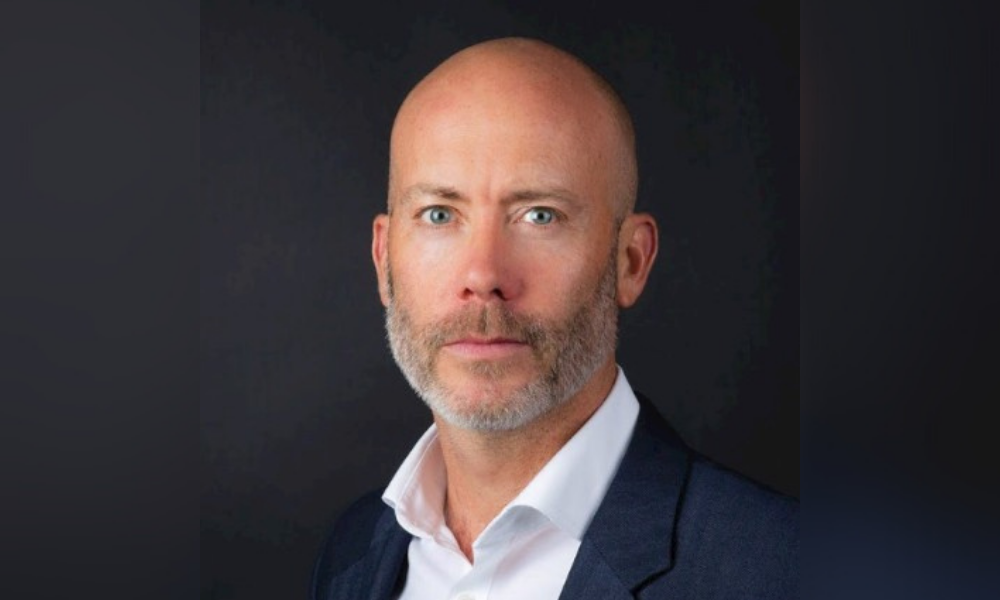Top financier dismisses global warming concerns, saying "who cares if Miami is underwater"

A high-ranking HSBC banker has come under fire for launching into a climate crisis tirade in which he branded environmentalists as “nutjobs” and joked about the threats of flooding.
Speaking at the FT’s Moral Money conference in London last week, Stuart Kirk (pictured), the global head of responsible investments at HSBC Asset Management, said “who cares if Miami is underwater” while railing against “nutjobs…always warning about end of world”.
During a highly charged presentation, called ‘Why Investors Need Not Worry About Climate Risk’, the financial services veteran complained about the effort involved in addressing a problem he claimed was too far into the future to worry about.
He said: “We’ve got inflation coming down the pipes and I’m being told to spend time and time again looking at something that’s going to happen in 20 or 30 years hence. The proportionality is completely out of whack.”
Visibly agitated, he also directed his anger at the previous speaker, Sharon Thorne, Deloitte’s global board chair.
He said: “I feel like it’s getting a little bit out of hand, the constant reminder that we are doomed. The constant reminder that within decades it’s all over. And indeed Sharon said ‘we’re not going to survive’ and…no-one ran from the room.”
Read more: Climate change to D&I: What the mortgage market must prioritise in 2022
Making light of climate change, he compared the current crisis with the Y2K millennium bug of 1999, when there were unfounded fears that computer systems would crash across the world as they would be unable to recognise the year 2000.
He went on: “Who cares if Miami is six metres underwater in 100 years? Amsterdam has been six metres underwater for ages and that’s a really nice place.
“There’s always some nutjob telling me about the end of the world. What bothers me about this one is the amount of work these people make me do, the amount of regulation coming down the line.
“Human beings have been fantastic at adapting to change, adapting to climate emergencies, and we will continue to do so. Unsubstantiated, shrill, partisan, self-serving, apocalyptic warnings are always wrong.”
He also claimed the markets “more or less” backed his view. “The more people say the world is going to end…the higher and higher risk assets go; the higher prices go.”
Kirk, who despite his financial credentials has no scientific background, began by taking a swipe at climate-conscious colleagues, suggesting they were more interested in making grand gestures to access funding.
“I completely get that there is a competition for funding…at the end of your central bank career, there are still many, many years to fill in. You’ve got to say something, you’ve got to fly around the world to conferences, you’ve got to out-hyperbole the next guy,” he seethed.
Following Kirk’s speech, the bank is now under pressure to sack him. In a damage limitation exercise, HSBC’s CEO Nicolas Moreau said Kirk’s comments “do not reflect views of HSBC Asset Management nor HSBC Group in any way”.
But Beau O’Sullivan, senior campaigner on the Bank on our Future campaign, was quoted in The Guardian newspaper, saying HSBC should remove him. “HSBC should be asking Mr Kirk to resign. His comments are inexcusable and completely neglect the impacts of the climate crisis being felt by the global south right now.
“Sadly, he’s probably not the only bad apple within HSBC given its record of funding climate destruction.”
Like many financial institutions HSBC, Europe’s top-ranking bank and the world’s eighth in size, has said it’s committed to tackling climate change, with Moreau adding that “HSBC regards climate change as one of the most serious emergencies facing the planet”.
Kirk, however, said the bank’s time would be better spent addressing a looming housing crisis, rising inflation and interest rates as well as attacks by cryptocurrencies, China and regulators in the US.
The banker’s comments follow in the wake of record-breaking heatwaves in many countries, resulting in crop failures, deaths, and water and power shortages, as well as devastating floods in Europe and other parts of the globe, which most experts insist are due to climate change.



